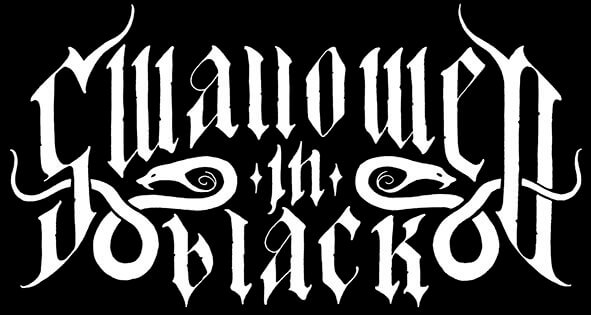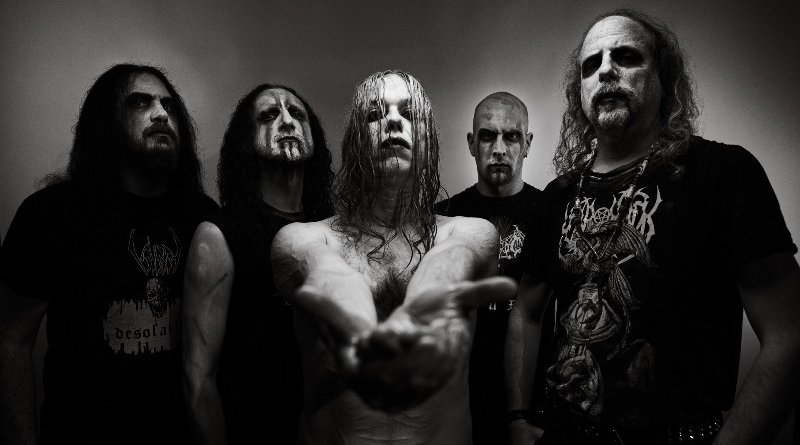“WHO WOULD HAVE BELIEVED IN THE ‘90s THAT BLACK METAL WOULD BE MUSIC PLAYED AT PLACES SUCH AS HELLFEST, WOULD WIN AWARDS IN NORDIC COUNTRIES, OR WOULD HAVE T-SHIRTS AT H&M STORES?” – PERVERSIFIER (MERRIMACK)
The peerless, pioneering, persevering force of supreme Parisian Black Metal made manifest under the Merrimack banner is ready to expand upon an unparalleled legacy of infernal purification by revealing appropriately-arcane sixth full-length perpetuation ‘Of Grace and Gravity’. Prefacing the imminent arrival of another immense occult offering, Perversifier – principal driving force and visionary behind this enigmatic entity across a span of decades three – provides enlightenment into the essence of Merrimack and ponders the place where corporeality and faith collide; how robes, hoods and paraphernalia do not a Satanist make; a historic night for Black Metal in the French capital; no regrets and starving crowns; the death of the Black Metal underground at the hands of the internet; and mankind’s calamitous propensity to learn nothing from the mistakes of history.
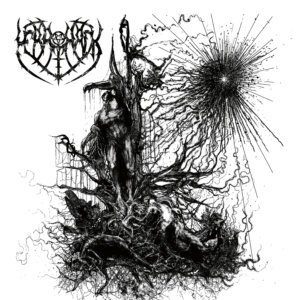 Almost unbelievably, the unholy manifestation of the sixth Merrimack full-length, ‘Of Grace and Gravity’, in 2024 will coincide with the band’s 30th anniversary. In many respects today’s world is unrecognisable from the one we inhabited in the mid-‘90s when you were setting out on this journey. Are we going backwards as a species? Have things got worse? How would you compare the wretched world into which Merrimack was conceived with the one you curse today with these seven new purifying purges?
Almost unbelievably, the unholy manifestation of the sixth Merrimack full-length, ‘Of Grace and Gravity’, in 2024 will coincide with the band’s 30th anniversary. In many respects today’s world is unrecognisable from the one we inhabited in the mid-‘90s when you were setting out on this journey. Are we going backwards as a species? Have things got worse? How would you compare the wretched world into which Merrimack was conceived with the one you curse today with these seven new purifying purges?
“A lot of things have indeed changed in the past 30 years. The world is very unstable at the moment, and it looks like things are accelerating. The generation of our parents always say that they have lived during a ‘blessed period’ (at least here in France), with no war, no pandemia, no unemployment, etc… The new generations are going through a hell bunch of events and the time of carelessness is over.
“One could believe that it’s natural cycles, or argue that life nowadays is much more comfortable than it was during the Middle Age or the beginning of the 20th century. But since we don’t seem to learn from our mistakes and from history, things repeat, but in a context which is much more explosive.
“If we take the example of wars, we have enough nuclear bombs to make the planet explode. When it comes to the pandemics, they can now expand exponentially because of the way we travel and interact with people. The human way of living is creating very recurrent natural catastrophes, the earth has been dying very fast during the past hundred years, and I don’t see that changing anytime. We have been living on earth for three million years, but we have never been so close to extinction.”
Observing things from inside the circle, so to speak, would you agree that the Black Metal landscape has undergone a seismic shift? I would suggest that shamefully many of the bands starting out now do not subscribe to or align in any way with the original (adversarial, outsider, antireligious…) ethos or spirit of Black Metal…
“I sincerely believe the Black Metal that we used to know and like is dead for a long time. We are only a few to try to perpetuate the primal essence of this genre, and there is almost no more demand for it. As the world has changed, so has the musical genre. People who still listen to bands such as Merrimack are generally above 40 years old, and the youngsters don’t have any interest in such music.
“Black Metal has divided itself into a myriad of subgenres, has then been crossed over with other kinds of music, and in the end, there is not much left today of what Black Metal used to be. Be it musically or ideologically.
“It was meant to happen, as Black Metal had expanded very fast and, the more people are infected by a virus, the more this virus mutates.”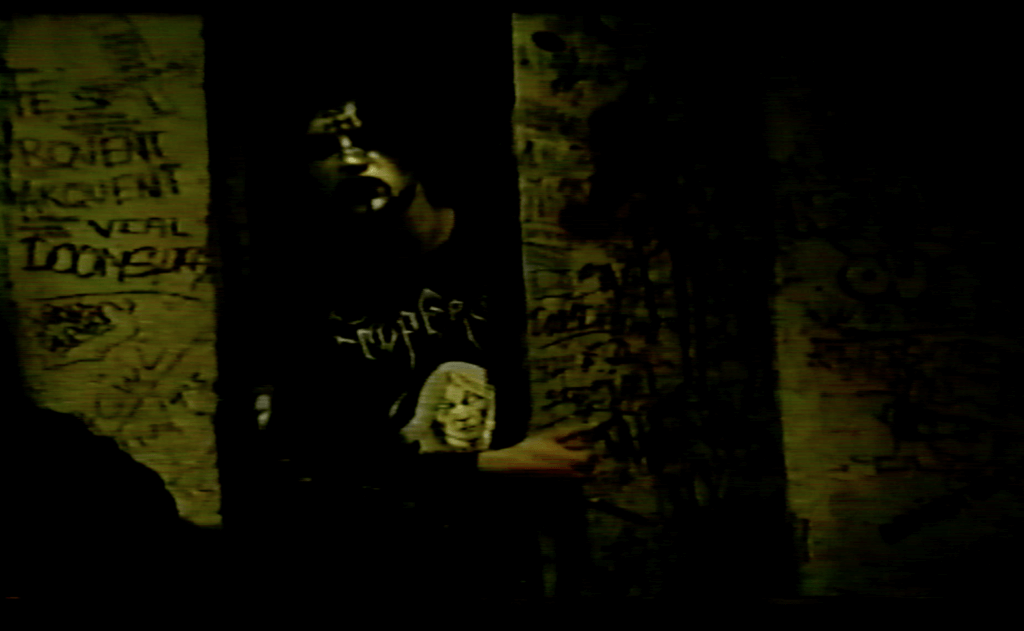
In contrast to the safe, work, PC warriors of today, BM was an exciting and dangerous seminal cultural movement in the ‘nineties. With Merrimack emerging around the same time as Antaeus and Arkhon Infaustus, the seething severs of Paris were front and centre of that monumental explosion. There was something in the air and it smelled like burning churches. How fondly do you remember those halcyon days, what was the primary force that was possessing or inspiring you, and to what extent do you still strive to channel those very same formative ideals, feelings and energies three decades later?
“Arkhon Infaustus is significantly younger than Merrimack or Antaeus. When we started, there were not so many bands in the French scene. I could name, in my recollection, from the Paris area, Enchantress Moon (who became Eternal Majesty), Osculum Infame, Forest of Souls, and from other regions of France, Vlad (who became Blut Aus Nord), Seth, Gorgon, Mütiilation and other various Black Legions projects, Funeral, Blessed in Sin, Lord, etc…
“We had only a partial vision of the scene at the time, as there was no internet, the only way to discover bands was to buy fanzines, tape trade, follow friends’ recommendations, check the flyers we received by snail mail, etc…
“So Black Metal as we considered it was often limited to our own little circle, or to what we could read in the fanzines. We had the feeling to build it, to be a part of it as main actors. As an example, Merrimack is the first French Black Metal band to have ever played live in Paris (in 1996. I still have the video tape of this gig).
“There was a lot of mystery around Black Metal, and we could only access the most sulphurous information; that contributed to forge the myth. It was not easily accessible, so all the people involved in this scene were very dedicated. Everything was exciting. Every new album was considered a jewel.
“For sure, I have nostalgia for this time, everything was genuine, we were part of a very closed circle of extreme people who created a scene, who paved the road for many bands to come. We didn’t have that much interaction with each other – as I explained, the only way to communicate was phone calls or snail mail – but the Parisian folks often used to meet in front of Notre Dame Cathedral, to hang out and drink beers. We all were supporting each other, there was no competition, because we were so few that it was a blessing to know each other and merge our passion.”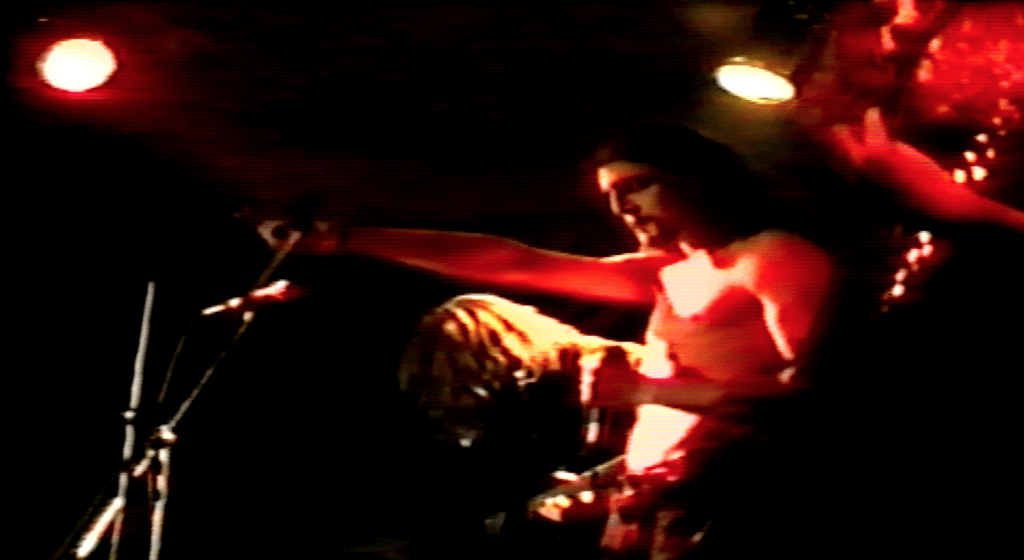
Did the dawn of the internet contribute directly to the demise of the original Black Metal underground? While the internet arguably confers many advantages upon mankind and opened a lot of doors, it also closed some – including perhaps that to UGBM. As you inferred, Black Metal was / is by its very nature by the underground, for the underground and of the underground. Remove it from its natural habitat and it will inevitably die… Rather than reinventing yourself to become compatible with the modern world, is Merrimack striving to tap into and channel the last remaining vestiges of the old Black Metal spirit?
“Internet was of course the revolution that has doomed Black Metal forever on many levels.
“First of all, it has contributed to making the mystery vanish, by giving access to a lot of information to literally anybody. One didn’t have to be deeply dedicated to this music to pierce some of its mysteries. The bands started to create Myspace accounts, and could be directly contacted with a snap of a finger. The average or mediocre bands could have a space to expose their (very bad) music, so everybody started to make a band. Prior to the internet, only the best bands were lucky and talented enough to sign on a label and have their art accessible to a wider audience. The natural selection has been totally reversed, and it became so easy to ‘belong to the scene’ that all individuals listening to Black Metal wanted to be part of it, by either creating a band, or a zine, or a label, and nowadays it would be a podcast, a fest organiser, or any other activity. There are not many people who content themselves with only listening to Black Metal; everybody wants to have an active role in it. As a consequence, mediocrity became the new standard.
“Who would have believed in the ‘90s that Black Metal would be music played at places such as Hellfest, would win awards in Nordic countries, or would have t-shirts at H&M stores?
“Secondly, the internet killed music in general. When music became digital, it was still manageable even though people started to massively burn CDrs, it was not a big change compared to the times when we were trading tapes. But the mp3 technology has dramatically changed the landscape for the worse.
“In the ‘90s, even though bands were underground, they still needed to SELL their music (even demo tapes) to survive. In order to pay for the rehearsal room, to buy a 4-tape analog recorder, to print tapes or to find a decent deal with an underground label. With the arrival of mp3s and peer-to-peer sites such as Napster, e-mule, mIRC, and then the torrents with ThePirateBay, it was as simple as a click to obtain music illegally, while sitting on your sofa. I remember people who were exchanging lists of their music collection on mIRC, containing literally tens of thousands of albums. Almost all albums that existed by that time. First of all, one can’t listen to so much music and really enjoy it, and secondly, the ‘collectible’ mania made these people want to have anything released, instead of the best music, or the music they like.
“In such a context, remaining underground was almost impossible. You are either drowned in this mass of shit, or you try to emerge a bit to keep going on.
“We have always kept our authenticity, even though we had to adapt to this new paradigm. We haven’t changed the nature of our art, so the underground spirit is still there. We haven’t started to play more accessible music, but a band nowadays needs to have a Facebook or Instagram page or else it would have absolutely zero visibility.”
Going back to that landmark first-ever Black Metal performance by a French band in Paris, where did this historic gathering take place and how many maniacs were in attendance? Can you recall anything else about that occasion – the show itself or the build-up or reaction to it?
“The concert took place in the legendary Gibus club in Paris. It was a night to remember. The venue was packed, I would say that around 350 people attended the show, even though three small and almost unknown underground bands were playing. It was a big event!
“At this time, we had sold in only a few months more than 1,000 copies of our autoproduced demo ‘Act 1’. We were dubbing the tapes ourselves and xeroxing the covers, and we were spreading it at high scale. So we were making a name in the Black Metal scene, and I believe that every fan of this music in Paris attended that gig.
“The crowd reaction was very enthusiastic, all our fellows were present, and it is still today a great memory for me. I am the only remaining member of the band from that period, and I often think about it filled with nostalgia.
“A few months later, in 1996, we opened for Dark Funeral in this very same venue and once again in 1997 in Le Club Dunois. These two gigs were definitely at a different level. Maybe my best memories. These three gigs immensely contributed to making the name Merrimack renowned in the French scene.”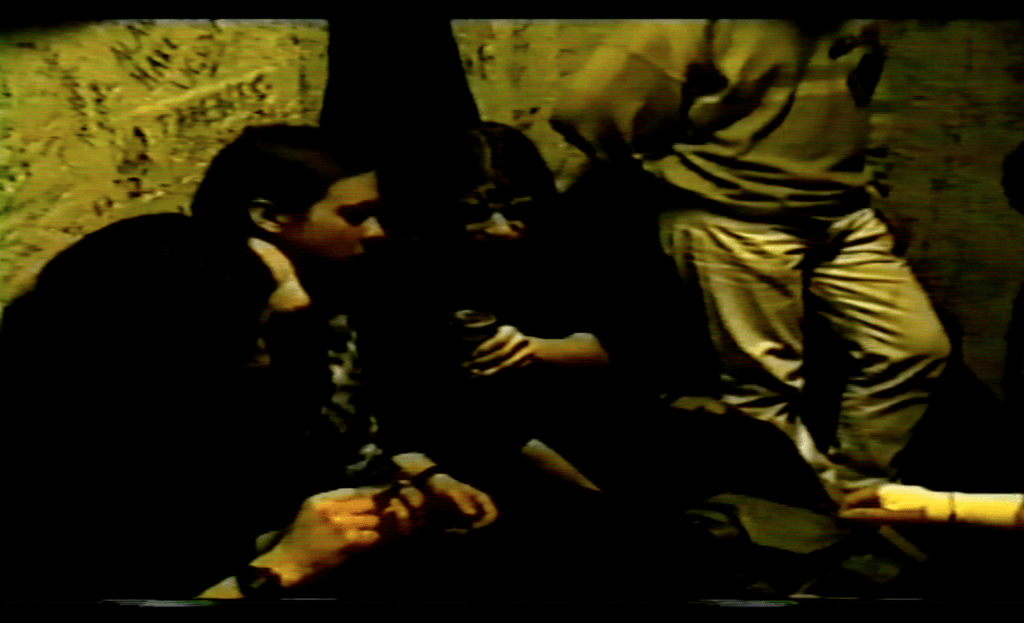
Traditional Black Metal is synonymous with an unapologetically antichristian ideology and worldview, strongly rejecting the idea of an Abrahamic god and spitting in the face of organised religion’s groomers and devotees. Orthodox and Satanic Black Metal inverts the worship of god and redirects it onto the devil as the ultimate form of mockery. Has Merrimack taken things to an even more nihilistic extreme on ‘Of Grace and Gravity’, which opens with profound adversarial intent as ‘Sulphurean Synods’ seemingly rejects all faith / beliefs, even perhaps those associated with the left-hand path (‘and you still believe in them? In these occult and empty ministries’)? Are you rejecting and renouncing all spirituality and worship here?
“I wouldn’t say that traditional Black Metal is synonymous with antichristian ideology. In the early days of BM, there were already a wide variety of thematics explored, such as mythologies, paganism, mediaeval times, fantasy, vampirism, occultism, and of course Satanism. Anti Christianism can be seen as the common denominator, but not necessarily the main focus. It would be too restrictive to consider that it was the definition of BM. Let’s say it was a prerequisite.
“‘Of Grace and Gravity’ is not at all a rejection of all faith. It’s more likely the opposite. It mocks the lack of faith that can be found in many bands nowadays, who focus on the folklore and the imagery. Wearing a hood and an occult necklace doesn’t give you any credibility. To the contrary, such gimmicks are often used to hide the lack of depth of the beliefs they pretend to have. It is a major trend today to see all these bands hiding under a disguise, supposedly to enhance the mystery, while the main reason is that if people knew who’s hiding underneath, they’ll immediately stop taking them seriously.
“In French, we have a saying : ‘the clothes do not make the monk’, which means more or less not to judge a book by its cover.”
Do you adopt a science-based approach to resolving the ‘mysteries’ of life? Are we just an accident of birth? Apart from the predatory perversion, insatiable greed and deep-rooted corruption of ‘the church’, does basic science explain away the possibility of god or the divine? As we are made from atoms which are subject to the law of gravity, we cannot therefore attain or know grace… Is this what you are alluding to in the album title? Can you elaborate further on what ‘Of Grace and Gravity’ represents or signifies?
“Faith is precisely what science can not explain. Faith does not need justification. You receive it, you don’t have to explain it.
“Merrimack has often adopted a scientific vocabulary in the past (for instance ‘entropy’). We have often used in our artworks and lyrics many references to the human body and organs, which are the physical manifestation of our being, in opposition to the divinities. It’s always interesting to have a good knowledge and understanding of the sciences to refine our beliefs. The more you discover about the earthly world, the more new questions arise. Questions that cannot be answered if you don’t build up some theories of your own, based on your beliefs.
““Of Grace and Gravity” can be understood in many different ways. We don’t want to reveal or explain it too much, we invite the listeners to read our lyrics, and to forge their own interpretation of what it is about.
“Like said in our statement for the first single release, grace and gravity are ‘the two opposing forces crossing where the spine of the world emerges. Where one strives to reach the grace, the divine particle, while bounded by gravity and the weight of time.’”
Nothing beats innate human intuition, instinct and knowing, which give rise to faith and spirit. An obvious shortcoming of the science-led approach to trying to solve life’s mysteries and problems is that the data collected is only as dependable as those entrusted with deciphering and disseminating it. Can we trust the powers that be to provide us with the truth or are they more likely to poison us (mentally and physically)? The lyrics to ‘Starving Crowns’ (‘Falsify, eradicate, inoculate. Falsify, eradicate, exterminate. The century has been betrayed. They have falsified even the diseases, parodied even the microbes. They have parked the cattle…’) suggest that perhaps recent world events do not sit comfortably with you…
“You’ve made a good guess. These lyrics are a clear allusion to what we’ve been through, but can be applicable more largely. The ‘starving crowns’ are the people ruling, manipulating and enslaving mankind. Be it priests, politicians, journalists, scientists, or social network owners.”
As the founder and primary driving force, you are the one constant of Merrimack from inception through to the present day. You have surrounded yourself with what looks like the most stable line-up to date, with the same personnel having recorded three successive full-lengths. How important is a steady line-up when it comes to achieving consistency in the studio and onstage? And does Merrimack feel more like a band – and perhaps a brotherhood – than ever before?
“You are right, I’m the only member left from the original line-up, I’m 46 years old and I’ve been in this band for 29 years. Makes me dizzy when I think about it. But even though I am the keeper of some kind of legacy, I couldn’t continue without the four other apostles by my side. They all hugely contribute to the present Merrimack manifestation. It is very important to have a stable line-up in order to keep consistency in our sound and music. We have also developed a common language based on common tastes and common goals. We understand each other. A band is a complex entity to manage. There are some strong personalities, some strong positions, and the sum of these five components creates the All.
“You need to get along very well with your band fellows when you have to spend 24 hours a day and seven days a week with them in a tour bus. You must be close enough to be able to tell each other ‘you sucked today at that gig’, or ‘the riff you composed is crap’, without him taking offence.
“You must know the triggers of conflicts, and you must know the catalysts of great momentums.
“It takes years to build this kind of relationship. But I wouldn’t say it’s a brotherhood either. We don’t see each other that much outside of the band activity, we don’t necessarily have the same way of life, the same circles of friends, and the same passions outside of our music. Sometimes I don’t see a band member for more than six months. We don’t phone each other to confess our personal problems and to find support. We don’t play this role for each other. Even though of course we share a lot of things together when we spend time in the studio or on the road.”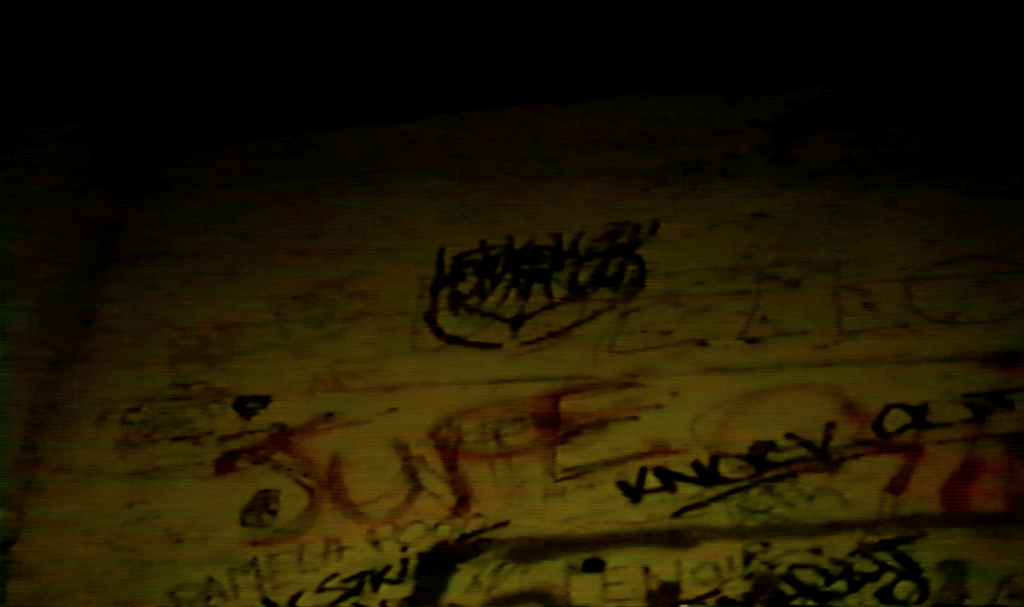
Would you describe yourself as an ‘old school’ musician / band? Is Black Metal about finding a winning formula and sticking to it, doing the simple things right without over-complicating the process (or cheating by taking shortcuts)? When recording an album, do you try wherever possible to assemble as a real band and generate the music ‘live’ to achieve an organic, analogue, honest and wholesome work of reverence?
“I personally would describe myself as old-school, in the sense that I prefer older Black Metal to nowadays attempts to make it innovative. I’ve never searched for originality. Trying to do something different just for the sake of doing something new, even though it is bad, has never been my goal. I prefer to do the more classical things that I enjoy. The older I get, the more I listen to older stuff. I come back to the classics.
“Our composition process is a bit burdensome. We mainly compose individually, at home, in an iterative process. All members have an equal say about the proposals, and we only keep the riffs and songs which are approved by all of us. If one of us doesn’t like a riff, we throw it away. Which means we keep about 10% of the overall content that we compose. That explains why it takes so long to create a new album. I think I’ve made 19 versions of ‘Starving Crowns’ before having the final one approved by all members. One has to be very patient! When the demo is finished, we go to the rehearsal room and find the final arrangements and the drums lines. It usually goes fast, because we only meet when we have a very mature demo and already know that everybody is really into the song.
“So, as you can see, it’s pretty much the opposite of how you’ve imagined it. But it’s still as honest as it can be. There is no compromise, and everybody has been involved in the composition, by giving his opinion of all the proposals made, and makes their own proposals. It’s just work that we do remotely. We then let the magic operate when we finally decide to practise the song live.”
Thirty years into this profane pilgrimage, what has been Merrimack’s greatest achievement and is there anything you would do differently if you could go back and start again? Do you still feel the same attraction to Black Metal and the dark arts as you did at the beginning?
“The band’s greatest achievement is to still exist, while so many have withdrawn from Black Metal. In 30 years, you change jobs many times, have new girlfriends or marry, for some of us make children, move from one place to another… all these events make non-dedicated people give up very easily what they pretended to be their passion and lifestyle. We have not. We keep our flame burning, and are as motivated as ever.
“I would not do anything differently.
“I barely listen to Black Metal nowadays, I must admit, but well, haven’t I already said that this music has been dead for years? I don’t find any new releases very exciting, and that might be the reason why I keep playing music: to compose the music I want to listen to. The one that I miss.”
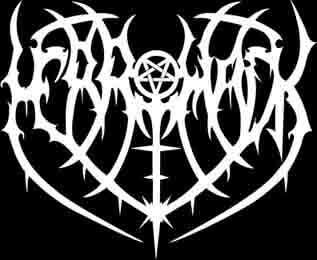
Note: this interview is accompanied by exclusive, previously-unpublished images captured on the unholy night of March 9th, 1996, when Merrimack delivered a historic Black Metal performance at the Gibus club, Paris.
